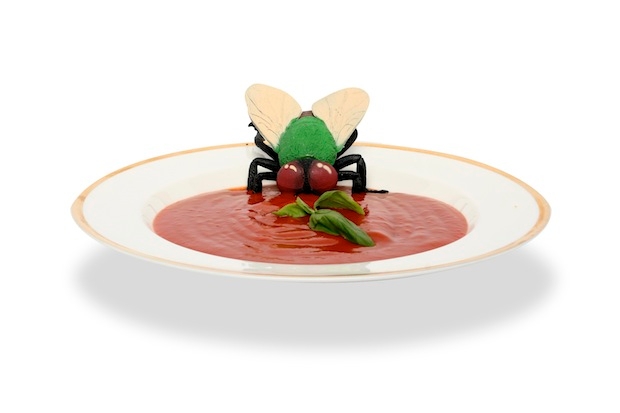‘Sorry, I’d love to go the pub this evening, but I have to go out. It’s my wife’s wedding anniversary.’ This Freudian slip was uttered by one of my colleagues a few years ago. It sprang into mind when I was casually browsing reviews of restaurants and hotels on TripAdvisor.
I always head for the negative reviews first. Not for what they tell you about the venue, but for what they unintendedly reveal about the reviewer. Sarcastic quotation marks and periphrasis are always a bit of a give-away: ‘…there was a floating rubber object in the toilet bowl!!! After complaining at reception we were given another room and a full refund. Staff were very apologetic about the incident.… I asked for additional compensation as we thought that a change of room and a refund was not really adequate. This was refused.’
‘Reasonably-priced food ? Hardly — £6.70 for a cream tea — they are taking the proverbial here. And blackcurrant jam, when it should be strawberry.’
I secretly hope these writers are abducted on their next holiday, to see how they handle real discomfort. ‘Without so much as an excuse-me, my wife and I were manacled to a wall and pistol-whipped by Serbian mercenaries. I would have awarded only one star, but for the Šljivovica, which was delicious, and served properly chilled!!!!’
Some complainants are genuine, of course. You can get terrible service (‘Do you want sugar in your tea?’ ‘No.’ ‘Well don’t stir it then’ was an example from a few years ago). But the most interesting thing about hostile reviews is how often the following phrases occur: ‘anniversary dinner’, ‘Mother’s Day’, ‘aunt’s birthday’, ‘family reunion’, and so forth. It would be interesting to analyse which special occasions generate most bad reviews.
What causes this? One explanation comes in a 1974 paper by Donald Dutton and Arthur Aron called ‘Some Evidence for Heightened Sexual Attraction under Conditions of High Anxiety’, later known as the Capilano Bridge experiment. In the test, an attractive female researcher with a questionnaire buttonholed men who had just crossed a wobbly wooden suspension bridge 230 feet above a river in Vancouver. She did the same to people who had just crossed a solid, low bridge upstream, in both cases leaving her phone number in case the men had ‘any follow-up questions’.
Half the men who had crossed the rickety bridge called her; only one in eight of the men who had crossed the ordinary bridge did so. This gave rise to the ‘misattribution of arousal’ theory. Effectively, when men’s bodies are flooded with adrenalin from crossing a dangerous bridge, they are as likely to attribute the hormonal explosion to the girl, not the bridge.
A similar effect may be at work in restaurants. The ‘misattribution of irritation’, in other words. People who are grumpy at being forced to attend celebratory meals under duress, or who are socially awkward in fancy restaurants, are much more likely to blame the restaurant than the circumstances for their mood. If you ever want a bad meal, just turn up at a good restaurant half an hour late. You will be angry at yourself for being late but unconsciously redirect your animus towards the staff. We’ve all done it.
It all suggests that David Hume was right: reason really is ‘the slave of the passions’. We explain our moods by hastily contrived, self-serving post-rationalisation. This is never more apparent than in politics. The supposed reasons people advance for being morally outraged are mostly spurious: off-the-shelf narratives to justify an emotional reaction. Let’s face it, if Guardian reporters had gatecrashed a Tory’s memorial service, few on the left would have given a damn.







Comments